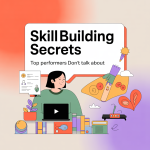
Unlocking Hidden Opportunities Through Skill Mastery: Insider Tips and Expert-Level Analysis
In today’s hyper-competitive world, developing the right skills can make all the difference between stagnation and accelerated success.
Yet, while most people chase obvious competencies like communication or time management, the real game-changers are often hidden in plain sight.
By tapping into insider tips, leveraging expert-level analysis, and recognizing hidden opportunities, you can cultivate a unique edge that propels you ahead in any field.
The Misconception About Skills Everyone Has
Many professionals believe that career growth is all about mastering hard skills — coding, data analysis, design, or writing.
While these are important, this narrow focus causes people to overlook essential hidden skills that significantly impact effectiveness, adaptability, and leadership.
Take, for example, the subtle art of “translational communication” — the ability to communicate complex ideas across different knowledge levels.
This skill isn’t taught in traditional education but is indispensable in cross-functional teams and client-facing roles.
It’s a hidden powerhouse that can elevate your career dramatically.
Insider Tip: Master Meta-Skills
Meta-skills are overarching abilities that govern how other skills are developed and applied.
These include adaptability, emotional intelligence, systems thinking, and learning agility.
Adaptability enables you to thrive during disruption.
It’s a key trait employers seek in fast-paced industries and is especially critical when navigating shifting roles or adopting new technologies.
Learning agility is another meta-skill that top performers constantly refine. It’s not just about being a “fast learner”; it’s about knowing how to learn efficiently.
This includes pattern recognition, experimentation, and unlearning outdated methods.
If you want to uncover and cultivate your personal growth accelerator, invest in meta-skills first.
These unlock exponential returns because they improve your performance across multiple domains simultaneously.
Expert-Level Analysis: The Hidden ROI of Soft Skills
A Harvard study once revealed that 85% of career success comes from well-developed soft skills, while only 15% stems from technical expertise.
And yet, soft skills remain under-taught and under-prioritized in most professional settings.
Among these, active listening stands out as one of the most undervalued. It builds trust, resolves conflicts, and improves team collaboration.
Unlike passive hearing, active listening involves reflective feedback, empathy, and clarifying questions.
Another often-missed skill is resilience. More than just enduring hardship, it’s about rapid recovery and bounce-back speed.
Elite performers are not the ones who never fall, but those who recover and recalibrate quickly — a trait increasingly vital in today’s volatile work environment.
Discovering Hidden Opportunities Through Skill Synergy
Combining complementary skills can create a synergy that unlocks new professional pathways. For instance:
-
Pairing data literacy with storytelling can turn you into a powerful communicator in analytics roles.
-
Merging design thinking with project management positions you perfectly for innovation leadership roles.
-
Blending technical know-how with business acumen opens doors to strategic roles like product management or consulting.
These hybrids are often underappreciated — yet companies value them immensely because they bridge silos and enable cross-functional collaboration.
Skill Mapping for Opportunity Discovery
One expert-level strategy used by career strategists is skill mapping.
This involves auditing your current skills and plotting them against industry trends and emerging roles.
From there, you can identify “adjacent skills” — those you’re only a few steps away from mastering — that align with future opportunities.
For example, if you’re proficient in marketing analytics, you’re already halfway toward mastering user experience optimization or customer journey design — both highly in-demand specializations.
This proactive mapping gives you a strategic advantage, allowing you to pivot quickly as new trends emerge.
How to Uncover These Hidden Skills in Daily Life
Some of the most impactful skills are acquired not through courses, but through intentional reflection on everyday experiences. Here’s how:
-
Keep a skill journal: Each week, reflect on situations where you faced a challenge. Identify what skill helped you (or was missing). This builds awareness of hidden strengths and weaknesses.
-
Shadow high performers: Observe how top colleagues operate in meetings, during crises, or while giving feedback. What do they do differently? What micro-skills can you adopt?
-
Reverse engineer outcomes: When you see someone deliver impressive results, work backwards to identify the skills that made it possible. Often, subtle abilities — like persuasive framing or anticipating objections — are behind the scenes.
The Role of Emotional Self-Regulation
Another powerful, underappreciated skill is emotional self-regulation. This goes beyond just “keeping cool under pressure.”
It’s about actively managing your emotional state to optimize decision-making, performance, and interactions.
People with strong self-regulation can pause between stimulus and response — a space that creates room for thoughtful choices rather than reactive habits.
It’s a foundational skill for leadership, negotiation, and creativity.
Don’t Just Learn — Stack Skills Strategically
It’s no longer enough to learn skills in isolation. The most successful professionals strategically stack skills — combining them to create unique value propositions.
Scott Adams, the creator of Dilbert, once said, “I’m not the best artist. I’m not the funniest writer. But I’m pretty good at both, and that combination is powerful.”
The same applies to your career. By blending moderately strong abilities in complementary areas, you can become uniquely valuable.
Think of it as building your “skill lattice” instead of a linear ladder.
Why the Average Professional Misses This
Most people are so focused on climbing the career ladder that they forget to look laterally.
They take the next obvious course, follow the next popular certification, or mimic others — without pausing to reflect on what’s truly rare, valuable, and personally synergistic.
The hidden opportunities exist not in what everyone is learning, but in the intersections no one is exploring.
Action Steps to Implement Today
-
List your top 5 strengths and identify complementary or adjacent skills.
-
Choose one meta-skill (e.g., learning agility) and find ways to practice it weekly.
-
Seek feedback on subtle skills from colleagues — what do they notice about how you communicate or lead?
-
Dedicate 20% of your learning time to non-obvious skills that support your core strengths.
-
Experiment publicly — use your new skills in low-risk projects and reflect on outcomes.
Final Thoughts
Mastering the right set of skills is no longer just about keeping up — it’s about standing out.
The real differentiators aren’t always advertised in job descriptions or taught in formal programs.
They’re the hidden competencies — emotional resilience, skill synthesis, meta-cognition — that silently power the most successful careers.
With a deliberate strategy that includes insider insights, expert-level analysis, and the pursuit of hidden opportunities, you can not only elevate your skillset but transform your entire career trajectory.


